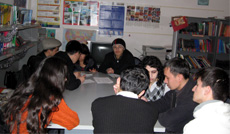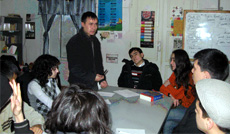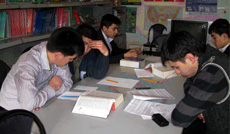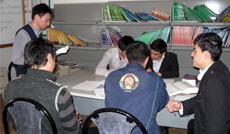Debate Club
What is Debate?
"You may be right and I may be wrong but with an effort,
together we may get nearer the truth.” - Karl Popper
Debate is a formal contest of argumentation between two teams or individuals. But more broadly, and more importantly, debate is an essential tool for developing and maintaining democracy and open societies. More than a mere verbal or performance skill, debate embodies the ideals of reasoned argument, tolerance for divergent points of view, and rigorous self-examination. Debate is, above all, a way for those who hold opposing views to discuss controversial issues without descending to insult, emotional appeals, or personal bias. A key trademark of debate is that it rarely ends in agreement, but rather, allows for a robust analysis of the question at hand. Perhaps this is what French philosopher Joseph Joubert meant when he said: “It is better to debate a question without settling it, than to settle a question without debating it.”
The passage is taken from the following resource: http://idebate.org
About Debate Club
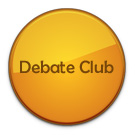 The Debate Club project was started in December, 2009. The initiator and host of the project is Kirill Madaminov. The debate club has been organized to discuss and debate the most pressing issues of the present days, while encouraging participants to develop public speaking skills, develop analytical and creative thinking, exchange personal opinions and ideas, and foster careful reasoning, tolerance and weighing of evidence.
The Debate Club project was started in December, 2009. The initiator and host of the project is Kirill Madaminov. The debate club has been organized to discuss and debate the most pressing issues of the present days, while encouraging participants to develop public speaking skills, develop analytical and creative thinking, exchange personal opinions and ideas, and foster careful reasoning, tolerance and weighing of evidence.
At least twice a month debaters of all levels and skills meet to debate on a preliminarily selected resolution topic. Although a topic research is not required, participants are usually encouraged to comprehend and reason what they are going to talk about. In-round research and third party consults during a debate are prohibited. Therefore, participants are encouraged to bring in prepared materials such as essays, graphs, articles or the like to support their arguments. You will find more information about the rules and formats of debates further down this page.
Kirill Madaminov, host of Debate Club
e-mail: mail4cyril@gmail.com
Formats Used in Debate Club
Public Forum Debate - http://www.idebate.org/standards/rulespublicforumdebate.php
Public Forum Debate offers students a unique opportunity to develop on-their-feet critical thinking skills by situating them in contexts not unlike US political (radio and TV) talk shows. Public Forum debaters must anticipate numerous contingencies in planning their cases, and must learn to adapt to rapidly changing circumstances as discussions progress. Public Forum's open-ended cross-examination format encourages the development of unique rhetorical strategies. Public Forum debates should be transparent to lay audiences while providing students with real-world public speaking skills through the discussion of contentious ideas.
Karl Popper Debates - http://www.idebate.org/standards/ruleskarlpopper.php
The Karl-Popper format focuses on relevant and often deeply divisive propositions, emphasizing the development of critical thinking skills, and tolerance for differing viewpoints. To facilitate these goals, debaters work together in teams of three, and must research both sides of each issue. Each team is given the opportunity to offer arguments and direct questions to the opposing team. Judges then offer constructive feedback, commenting on logical flaws, insufficient evidence, or arguments that debaters may have overlooked.
Two Team and Four Team Parliamentary Debate - http://www.idebate.org/standards/rulestwoteamfourteam.php
Parliamentary Debate is a team format modelled on the British House of Parliament, with one or more teams representing the government, and the others speaking for the opposition. In general, parliamentary debaters have the freedom to offer both practical and philosophical arguments for their side (a combination of the Lincoln-Douglas and policy debate formats). In addition to constructive and rebuttal speeches, speakers are allowed points of order, of privilege, and of information - interruptions that highlight erroneous claims and/or breaches of etiquette. Parliamentary debates are also permitted to heckle one another with short, witty, and relevant comments, which challenge some aspect of the opponent's case and entertain the audience.
Please note that neither the debate club, nor UzTEA is anyhow supported by www.idebate.org
Sessions List
# |
Date |
Session Name |
1 |
12 December, 2009 |
Does academic qualification ensure success in life? |
2 |
19 December, 2009 |
Age Discrimination – should age discrimination be made illegal in the workplace? |
3 |
23 January, 2010 |
Students should decide what subjects to study at colleges and universities |
4 |
6 February, 2010 |
Premarital Cohabitation. Should couples live together before getting married? |
5 |
27 February, 2010 |
Advertisements do more harm than good. Is having widespread advertising good for a society? |
6 |
13 March, 2010 |
Global language. Should everyone speak and be taught the same language? What language should it be? |
7 |
20 March, 2010 |
Internet addiction |
8 |
17 April, 2010 |
Copyright |
